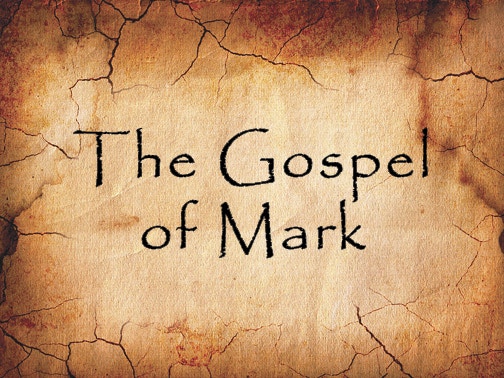
The Gospel of Mark
Dr. Thomas EvansThis Sermon Series is based on an ancient preaching pattern called Lectio Continua. It refers to a verse-by-verse approach that takes you through an entire book. We will not be following this pattern strictly, but my hope is by the end of this series it will feel as if we have.
For the most part, we approach the Bible in bits and pieces. This disjointed approach inevitably skews our understanding. Just like most any written work, the books of the Bible are meant to be read as a whole, not in small brief sections. We will be using the Gospel of Mark and by the end I feel certain you will gain entirely new insights and perspective that cannot come from an occasional brief foray in this gospel.
Mark has crafted an amazing framework and powerful themes that build a case verse-by-verse and chapter-by-chapter. It is decidedly dramatic how this approach adds an entirely new layer, while creating a comprehensive grasp of Jesus’ story. We will also leave with a much clearer understanding that Mark is a story written by a specific person, at a specific time in history, for a specific purpose, to a specific group of people. This clarity will enrich its power and open more deeply the divine word to us today.
As you probably know, Mark is the shortest gospel and thought to be the earliest written, around 64 AD – a few years before the destruction of the Temple. Most of my research for this series came from two commentaries: Binding the Strong Man by Ched Myers, a sociopolitical reading, and Mark by Lamar Williamson, whose book is part of a preaching series known as “Interpretation”.
As we begin to unpack the Gospel of Mark, we will find that nothing should be taken for granted. Not even referring to this as the “Gospel of Mark.”
First, there is no claim of authorship within the text itself! The name of this book, Mark, does not appear until at least 120 AD. It is attributed to St. Mark the Evangelist (Acts 12:12; 15:37), an associate of St. Paul and a disciple of St. Peter. Secondly, to call this a “Gospel” is to assume a tremendous amount.
The word, “gospel,” comes the from old English word, gōd “good” + spel “news”. It was the word which simply meant “good news”.
As a literary genre a gospel is not a biography, especially this gospel. It contains nothing about Jesus’ birth, hardly anything about his family or life experiences. The entire book is about the last three years of his life and most of it about his last week. Most all biographical questions are left unanswered. Some believe Mark adapted a literary genre common to the time known as Aretalogies, or divine-man biographies. These works were about a famous hero that had been built up to make him god-like, for example Julius Caesar.
However, Mark’s Gospel seems to be the first of its kind, paving the way for dozens of others to be written in centuries to come; not so much about the life of Jesus, but written rather as a story with the purpose of answering this question: “Who is Jesus of Nazareth?”
The Beginning
Re-formed by God
Re-formed by God
My Beloved
My Beloved
The Power of a Word
The Power of a Word
Who is This Man?
Who is This Man?
Imitators of a Life
Imitators of a Life
Communion

